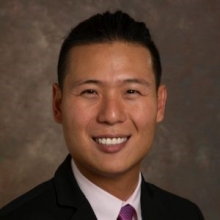CBE Seminar (Zoom): Mechanical Forces at Biological Interfaces - From Cells to Human Touch

Assistant Professor
Dept. of Materials Science & Engineering
Dept. of Biomedical Engineering
University of Delaware
Registration link for non-UCI people:
https://forms.gle/5aGmRGwQ5aXP954q8
Abstract: Mechanical properties and forces play important roles in biology. On the scale of cells, the mechanical stiffness of cells and tissue can indicate diseases like fibrosis or elucidate pathways. On the scale of the human body, mechanical forces form the basis behind the perception of touch. Despite the importance of mechanical forces and properties in biology, they are often difficult to measure. Biological interfaces are often buried in hard-to-access interfaces, especially in situ and are complex because they are soft and heterogenous. I will discuss our work on developing tools and theory to measure or control biological interfaces. Regarding the sense of touch, we found that human subjects can discern between two flat surfaces coated in surface monolayers that differ only by a single atom substitution. Furthermore, we found that the perception of softness is a shared sensation between humans. These insights, interpreted through a lens of adhesion and friction mechanics, could lead to new haptic interfaces for virtual reality, basic insights into touch perception, and develop new technologies to make STEM more accessible for people with low vision or blindness. Regarding cellular and tissue mechanics, we developed a new method of extracting the stiffness of cells and tissues within microfluidic devices in situ. By using deformable fluid-solid interfaces (elastohydrodynamic flow), sensed through graphene piezoresistive strain sensors, we can monitor cellular monolayers in a non-contact and in situ manner, addressing a critical gap between basic biology and clinical translation of mechanical biomarkers.
Bio: Charles Dhong is an assistant professor at the University of Delaware in the Department of Materials Science & Engineering and the Department of Biomedical Engineering. He received his B.S. from UC Berkeley in chemical and biomolecular engineering and received his Ph.D. at Johns Hopkins University in chemical and biomolecular engineering. He conducted his postdoctoral research at the UC San Diego in the Department of NanoEngineering. His research is currently supported through grants from the NIH.
Host: Assistant Professor Quinton Smith
Share
Upcoming Events
-
MSE 298 Seminar: Radiation Resistance and Mechanical Response of Ceramics in Extreme Environments
-
MAE 298 SEMINAR: Stretchable Electronics for Soft Biological and Robotic Systems
-
CBE Distinguished Lecture/CBE 298 Seminar: Computational Design of Peptides as Detectors, Sensors and Drugs
-
MSE 298 Seminar: Molecular Modeling in the Age of AI - From Energy Materials to Device Simulations
-
CBE 298 Seminar: Metal Electrodeposition for Modern Mineral Refining
